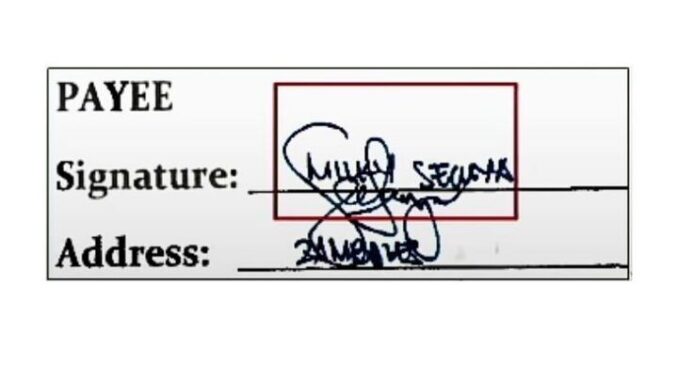
MANILA, Philippines — The Philippine Statistics Authority (PSA) reported that 60% of the 677 individuals who allegedly received confidential fund payments from the Department of Education (DepEd) have no records in their database.
This was revealed at the House good government committee’s eighth hearing on the Office of the Vice President’s (OVP) and DepEd’s alleged misuse of confidential funds on Monday, December 9.
Rep. Joel Chua (Manila, 3rd District) said the PSA informed the panel on Sunday, December 8, that 405 out of 677 names submitted had no birth, marriage or death certificates in the Civil Registry System.
These names appeared on the acknowledgment receipts, or proof of payments, which lawmakers have deemed “fraudulent” due to the numerous typographical errors.
Some receipts lacked dates or were incorrectly dated, showed the same signature but different names, or were signed by the same individual but in different cities.
RELATED: PSA asked to verify 677 names after ‘Mary Grace Piattos, Kokoy Villamin’
The committee is scrutinizing the OVP’s P500 million and DepEd’s P112.5 million confidential fund use.
More names in question
Rep. Zia Alonto Adiong (Lanao del Sur, 1st District) presented to the committee his staff’s analysis of acknowledgment receipts, where the names “Milky Secuya” and “Alice Cresencio” appeared.
The lawmaker said that two acknowledgment receipts bearing Secuya’s name had different signatures, even though they were signed on the same day in Zambales.
House of Representatives via YouTube / Philstar.com’s screenshot
Meanwhile, Cresencio’s name appeared on three separate acknowledgment receipts, each from a different city and bearing different signatures.
One receipt was signed in Iligan City, another in Pasay City, and a third in Lanao del Sur.
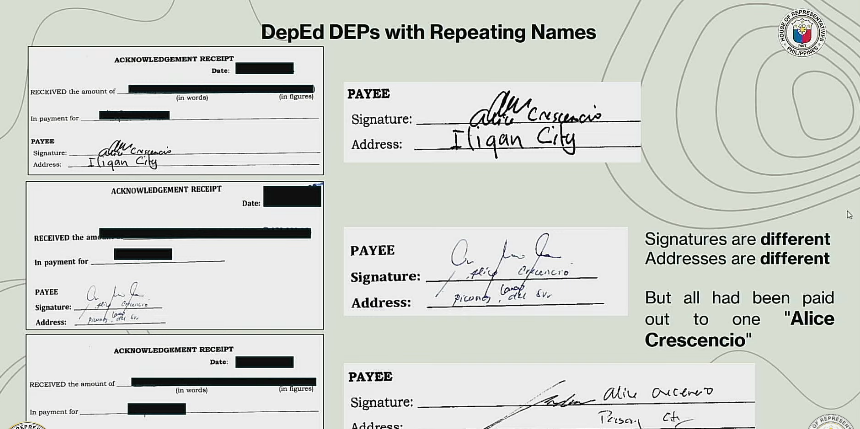
House of Representatives via YouTube / Philstar.com’s screenshot
Secuya’s and Cresencio’s names were among the 677 verified by the PSA, but neither appeared in the agency’s database.
“By its very nature, these are acknowledgment receipts. This means you sign them whenever you receive money,” Adiong said.
Two other names, Sally and Shiela, also appeared on the acknowledgment receipts but with the same signature. They were also signed in different cities.
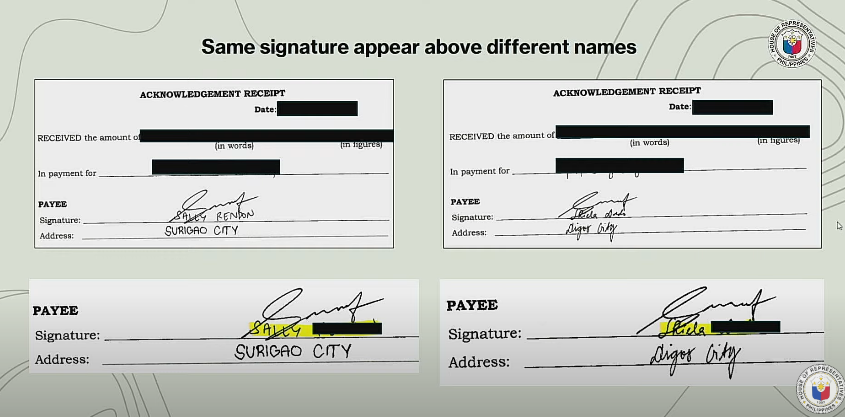
House of Representatives via YouTube / Philstar.com’s screenshot
Regarding the receipts dated December 2023, which fall outside the coverage of the agencies’ confidential funds, Adiong said it is “impossible” that over a hundred people mistakenly claimed the payment in 2023 when they meant 2022.
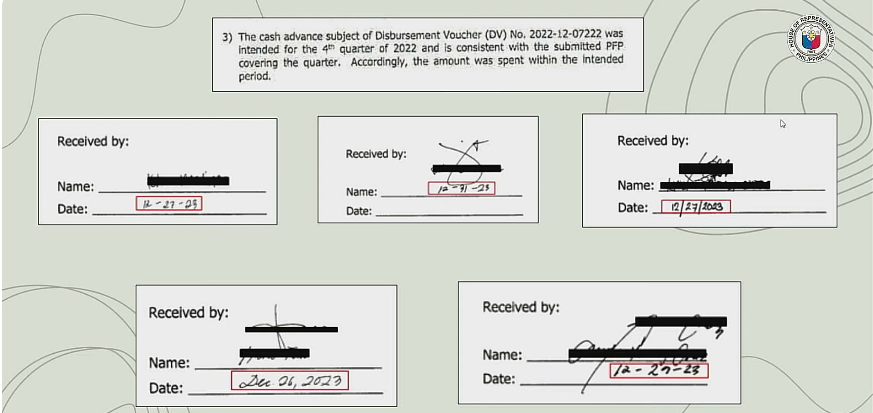
House of Representatives via YouTube / Philstar.com’s screenshot
According to the Commission on Audit, the OVP attributed these errors to the limited time for confidential activities and personnel overlooking details while handling large volumes of paperwork.
Contradicts confidential fund protocols
Adiong further questioned the purpose of Joint Circular 2015-01, which provides the guidelines for confidential and intelligence funds, if receipts use code names while documents are stored confidentially.
“Why is there a need for the Joint Circular to require the agency to keep it in a safe and have an acknowledgment receipt and put it in a sealed envelope?” Adiong said.
Based on Section 4.15 and 6.2 of the circular, the documentary evidence of transactions — such as the acknowledgment receipts — should be kept in a sealed envelope, classified as “confidential,” and stored in a vault.
Assuming the receipts use fake names or fraudulent identities, Chua suggested including a requirement in the committee’s proposed amendment to the circular that recipients sign with their real names.
Vice President Sara Duterte is facing two impeachment complaints, both citing irregularities in the acknowledgment receipts as the basis for alleging abuse of confidential funds.


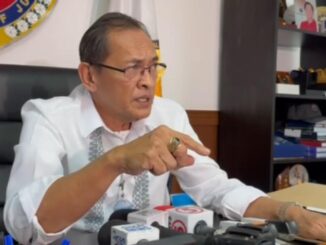
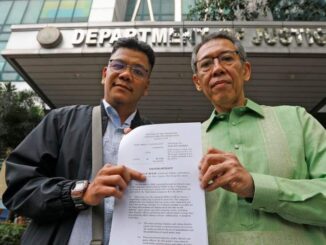

Be the first to comment